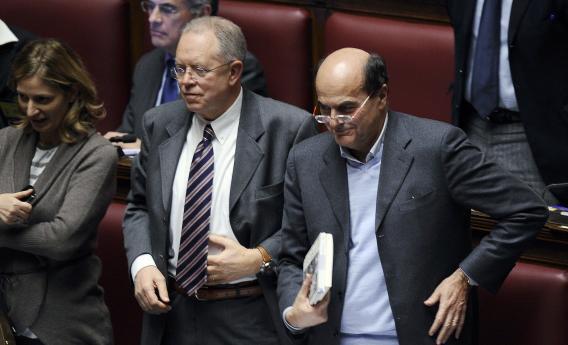Today’s Italian election meltdown largely reflects an electoral rebellion against the austerity measures that have been imposed by the European Central Bank. Those measures are, indeed, disastrous. That said, the electoral platforms of the anti-austerity candidates—Silvio Berlusconi and Beppe Grillo—are if anything even more disastrous than the austerity propounded by incumbent Mario Monto or the more left-wing version of austerity offered by the Italian Democrats
That’s because the only real policy alternative to accepting ECB diktats would be for Italy to go the full Argentina, ditch the euro, redenominate debts in New Lira, and suffer the blessings and curses of sharp currency devaluation.
But while I think such a policy may well be the right idea, you have to understand that it’s not really an alternative to austerity. A national government that defaults on its debts will find itself needing to close its budget deficit very quickly for want of anyone willing to lend money. And a population whose currency depreciates rapidly will find its consumption possibilities rapidly squeezed. The idea of default-and-devalue isn’t to provide an alternative to austerity, it’s to provide a faster and less painful way of implementing austerity. The ideas that Grillo is putting forward—that Italy can drastically increase public expenditure, avoid tax increases, and make it all work by cutting military spending might work in the United States of America but are a total fantasy as applied to Italy’s objective situation.
If Italians want to avoid the path of default and devaluation—and for better or for worse it seems like they do—then the only real option on the table is do what Mario Monti wants so he’ll keep borrowing costs down. A savvy negotiator would try to get Monti to agree to somewhat less straight-up budgetary austerity in terms of somewhat more in the way of the international technocracy’s beloved labor market reforms. The Democrats’ leader, Pier Luigi Bersani, has some real background and credibility in this regard having overseen pro-competition market liberalization as a minister in Romano Prodi’s second cabinet.
